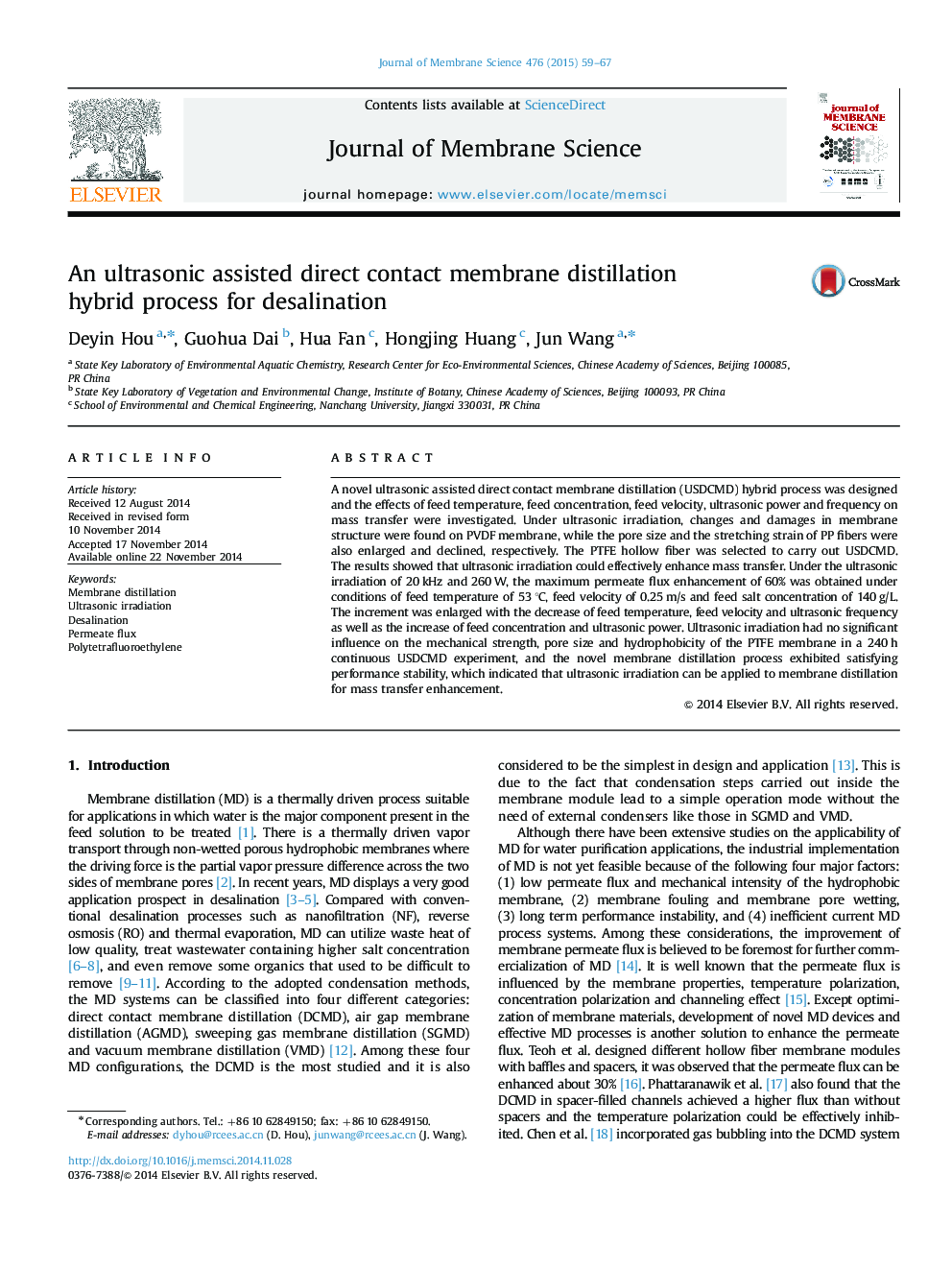| Article ID | Journal | Published Year | Pages | File Type |
|---|---|---|---|---|
| 7021555 | Journal of Membrane Science | 2015 | 9 Pages |
Abstract
A novel ultrasonic assisted direct contact membrane distillation (USDCMD) hybrid process was designed and the effects of feed temperature, feed concentration, feed velocity, ultrasonic power and frequency on mass transfer were investigated. Under ultrasonic irradiation, changes and damages in membrane structure were found on PVDF membrane, while the pore size and the stretching strain of PP fibers were also enlarged and declined, respectively. The PTFE hollow fiber was selected to carry out USDCMD. The results showed that ultrasonic irradiation could effectively enhance mass transfer. Under the ultrasonic irradiation of 20 kHz and 260 W, the maximum permeate flux enhancement of 60% was obtained under conditions of feed temperature of 53 °C, feed velocity of 0.25 m/s and feed salt concentration of 140 g/L. The increment was enlarged with the decrease of feed temperature, feed velocity and ultrasonic frequency as well as the increase of feed concentration and ultrasonic power. Ultrasonic irradiation had no significant influence on the mechanical strength, pore size and hydrophobicity of the PTFE membrane in a 240 h continuous USDCMD experiment, and the novel membrane distillation process exhibited satisfying performance stability, which indicated that ultrasonic irradiation can be applied to membrane distillation for mass transfer enhancement.
Keywords
Related Topics
Physical Sciences and Engineering
Chemical Engineering
Filtration and Separation
Authors
Deyin Hou, Guohua Dai, Hua Fan, Hongjing Huang, Jun Wang,
